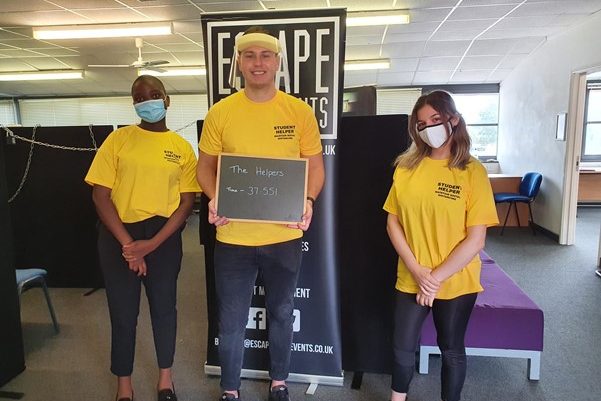An article from the Thriving @ Work project group:
University Mental Health Day brings together the university community to make mental health a university-wide priority’. Although the primary focus is on student mental wellbeing, all staff can support our students and there is an online training programme “Identifying and responding to Student mental health problems” . Kent also recognises that any initiatives and processes that support the mental health of all those involved in higher education, be they working or studying or both, is a force for good, and will have a beneficial effect across the community.
The University’s Thriving @ Work project group have assessed and produced a plan with the aim of ensuring appropriate and easily accessible support for staff’s mental health needs. The group recognised early on that no single space existed where colleagues could access up to date information on staff mental health support available at the University of Kent. Its first action was to construct the Staff Mental Health Support web resource .This went live on Time to Talk Day, exactly one month ago. The Mental Health Awareness module within staff training moodle launched the same day.
The web resource will provide you with everything you need to know to access help, be that if you are feeling emotionally fragile or challenged by the circumstances that life is presenting to you. You will find out how to access advice and support if you have been diagnosed with a mental health problem. You will also find signposting to literature and tools to help you build up mental health resilience,
The Thriving @ Work group have plans for further initiatives rolling out from Spring onwards:
- Employee Assistance Programme, (EAP) Just over a year ago the EAP was launched. To ensure its continued success the University would like to gather your thoughts on the service. There is now an EAP Feedback Questionnaire for you to fill in, where we encourage all those that have used the service to complete the questionnaire and provide us your thoughts, all responses will be completely anonymous. The closing date of this survey is Wednesday 24 March.
We plan to complete a lunch and learn session on the EAP during April so it would be great to get your feedback so this can be built into the session.
- Mental Health Allies Training: this will be open to staff who have an interest in or experience of mental health issues. This could be related to involvement from a personal, work, or academic viewpoint. The role of the Mental Health Allies will be to advocate for support and empowerment of colleagues who are living with mental health challenges. This advocacy is aimed at ensuring that these colleagues are not treated less favourably because of their mental health issues. In addition, Mental Health Allies will provide an ear to those who wish to discuss their feelings and will be able to signpost them to what support is available.
- Lunch and Learn Sessions: the focus of these sessions will be to talk through the staff support accessible through Occupational Health and Wellbeing (OHW and will include discussion and guidance on university processes. There will be a focus on topics such as :
- Managing Sickness absence – including what to do when a member of staff is unwell , on extended sick leave , returning to work and reasonable adjustments
It is anticipated that these sessions will be led jointly by members of OHW and HR.
If you can think of a topic related to mental health at work which you believe would be a good subject for a Lunch and Learn session, please let the Thriving @ Work group know by emailing equalityanddiversity@kent.ac.uk










